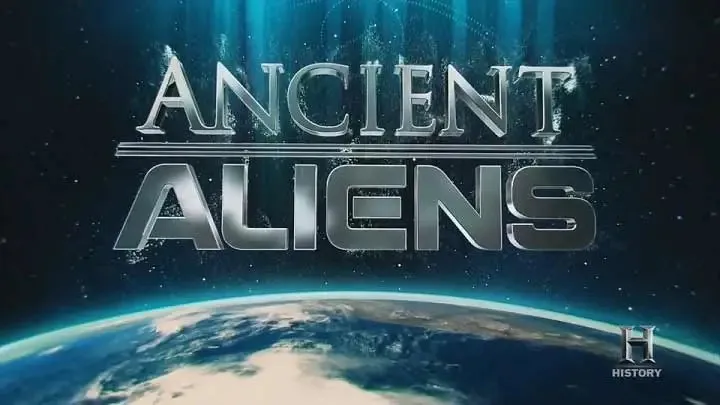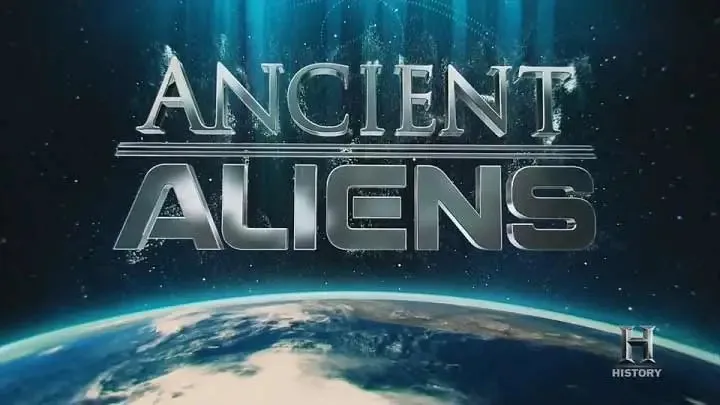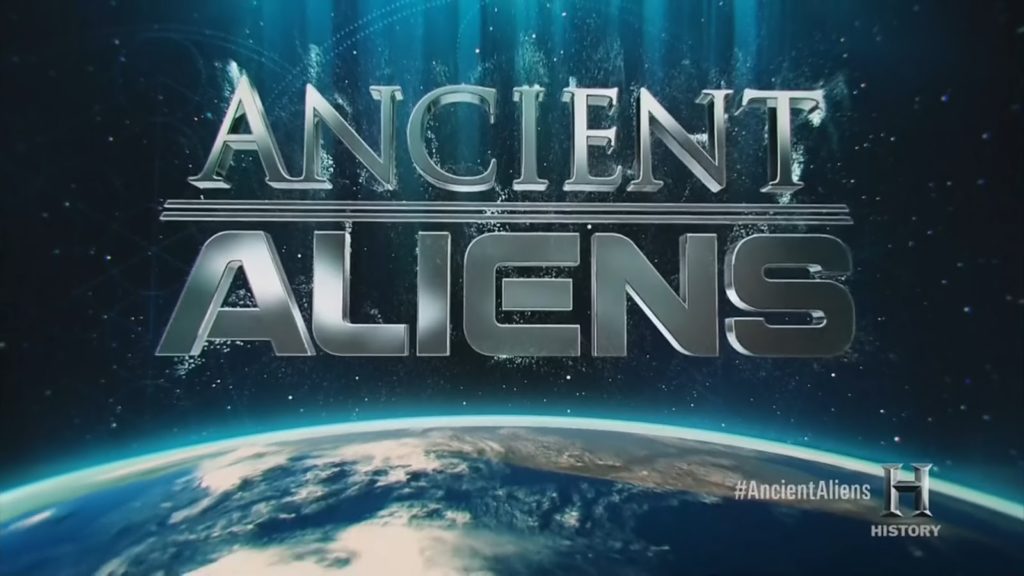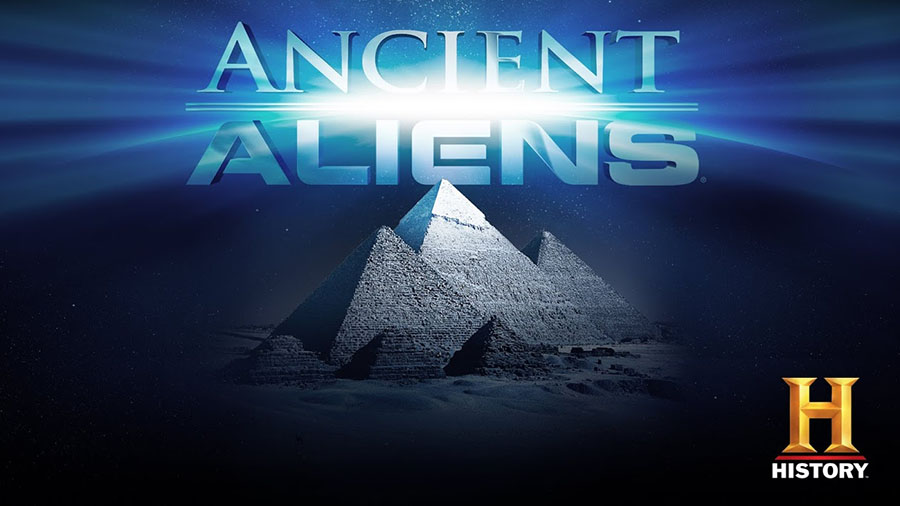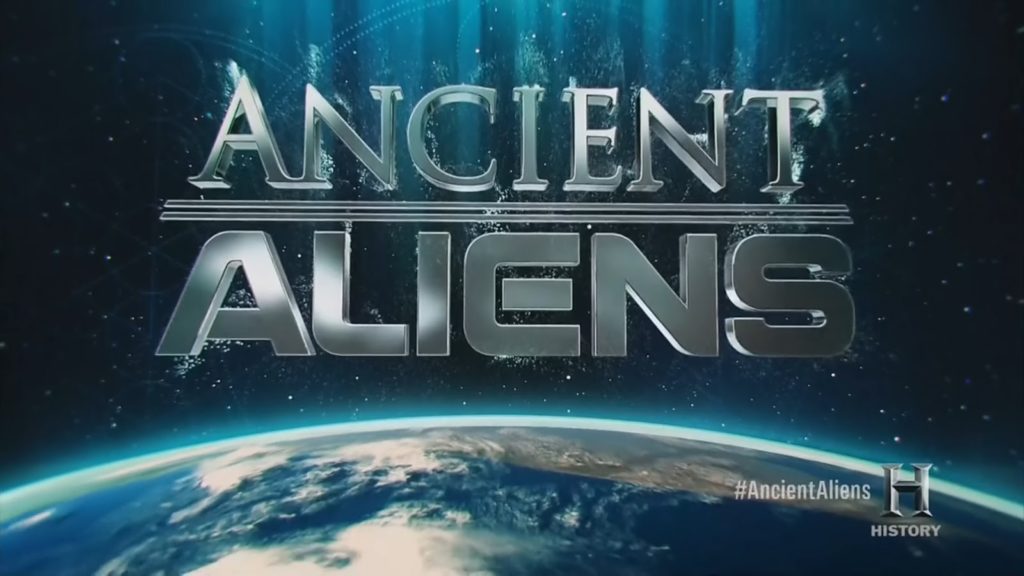Ancient Aliens – S19 E06 | Cosmic Impacts: Meteor impacts have significantly altered our world, creating the perfect environment for the rise of humankind and delivering metals essential to the development of an advanced civilization. But could new evidence reveal that celestial objects have been directed to Earth by an alien intelligence?
Ancient Aliens is an American television series that premiered on April 20, 2010, on the History channel. Produced by Prometheus Entertainment in a documentary style, the program presents hypotheses of ancient astronauts and proposes that historical texts, archaeology, and legends contain evidence of past human-extraterrestrial contact. The show has been widely criticized by historians, cosmologists, archaeologists and other scientific circles for presenting and promoting pseudoscience, pseudohistory and pseudoarcheology.
Ancient Aliens explores the controversial theory that extraterrestrials have visited Earth for millions of years. From the age of the dinosaurs to ancient Egypt, from early cave drawings to continued mass sightings in the US, each episode in this hit HISTORY series gives historic depth to the questions, speculations, provocative controversies, first-hand accounts and grounded theories surrounding this age old debate. Did intelligent beings from outer space visit Earth thousands of years ago?
Did intelligent beings from outer space visit Earth thousands of years ago? From the age of the dinosaurs to ancient Egypt, from early cave drawings to continued mass sightings in the US, each episode gives historic depth to the questions, speculations, provocative controversies, first-hand accounts and grounded theories surrounding this age old debate.
Ancient Aliens – S19 E06 | Cosmic Impacts
Cosmic impacts have been a significant phenomenon in our solar system’s history. The consequences of these collisions have shaped the planets, moons, and asteroids in our solar system. First and foremost, it is important to note that cosmic impacts occur frequently. In fact, scientists estimate that millions of asteroids and comets orbit our solar system, some of which pose a potential threat to Earth.
Furthermore, cosmic impacts have played a crucial role in the formation of our planet. For example, it is believed that a massive impact between Earth and a Mars-sized body approximately 4.5 billion years ago led to the formation of the moon. Additionally, impact craters on Earth and other planets provide evidence of the violent history of our solar system.
In recent years, scientists have increased their efforts to study cosmic impacts and their potential effects on Earth. They have developed techniques to detect and track near-Earth objects and have proposed various methods to deflect or destroy objects that could potentially collide with Earth. The study of cosmic impacts is essential for our understanding of the history and future of our solar system. As we continue to explore space and search for life beyond Earth, it is crucial that we gain a deeper understanding of this phenomenon and develop strategies to protect ourselves from its potential dangers.
Alien Intelligence
The concept of alien intelligence has long captivated our imagination, with countless books, movies, and television shows exploring the idea of extraterrestrial beings possessing advanced cognitive abilities. While many people may dismiss the possibility of intelligent life beyond Earth as pure fiction, scientific research has shown that the existence of such beings is not entirely implausible.
Firstly, scientists have identified numerous exoplanets, or planets outside of our solar system, that exist in the habitable zone of their respective stars. This means that the conditions on these planets may be suitable for life to exist, and in turn, intelligent life could potentially evolve. Furthermore, recent advancements in technology have allowed us to detect and analyze the atmospheres of some of these exoplanets, giving us valuable insights into their chemical compositions and potential habitability.
Secondly, the study of astrobiology, which seeks to understand the origins, evolution, and distribution of life in the universe, has made significant strides in recent years. Scientists are now able to better understand the conditions that led to the emergence of life on Earth, and are using this knowledge to explore the possibility of life existing elsewhere in the cosmos. Additionally, the discovery of extremophiles, organisms that are able to survive in extreme environments on Earth, has expanded our understanding of the potential range of conditions that life can exist in.
However, it is important to note that the search for alien intelligence is not without its challenges. Communication with extraterrestrial beings may prove to be difficult, as the languages and methods of communication used by these beings may be vastly different from our own. Additionally, the vast distances between us and any potential alien civilizations would make it difficult to establish any meaningful contact.
Despite these challenges, the search for alien intelligence remains a fascinating and worthwhile endeavor. The discovery of intelligent life beyond Earth would not only expand our knowledge of the universe, but could also have profound implications for our understanding of our place in the cosmos. As we continue to explore the mysteries of the universe, it is important to remain open to the possibility of encountering other intelligent beings, and to approach this discovery with curiosity and a willingness to learn.
